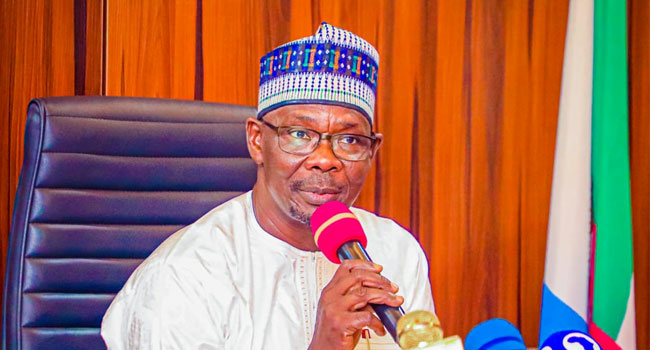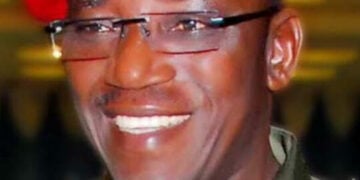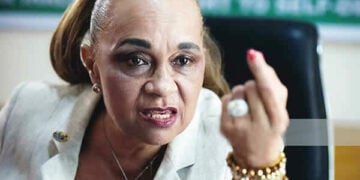What made you to join politics having been key private sector player all along?
While I was in Lagos, I had the opportunity of being informed or invited to run for the office of the governor of Nasarawa State. At the initial stage, I was a bit uncomfortable because I didn’t trust politicians, and I didn’t want to be invited only for them to eat my money and send me away.
How did you take-off?
When we finally made the decision that I was going to take the challenge, one of the things we did was to invite my good friend, Kunle Elebute, from KPNG to carry out a comprehensive survey on the state because I will not claim that I knew Nasarawa that much.
After going to school outside the state, studying in the United State (US), working in the US, coming back to Nigeria, working in Lagos, so I didn’t live much in Nasarawa State to say I knew the state that well.
So, Kunle Elebute and his team spent six months to do a comprehensive survey. One of the things they said was that Nasarawa was one of the richest states in the federation with great potential.
What have you done to transform the solid minerals sector in Nasarawa State?
The Elebute team mentioned to me the area that I know very well – oil and gas. They said as a matter of fact, there was presence of hydrocarbons in Nasarawa State, and yet nothing was done. And they mentioned about the solid metals, the precious metals, agriculture. So, I became excited. So this is just a little background for you to know that we didn’t go into it by accident.
I’m happy that you went to the marble and tiles factory site. You will have been more excited if you had gone to the site of our lithium processing plant. There is tin operation. These solid minerals factories are being duplicated across the state. There are more companies coming in to invest in the solid minerals sector right now.
We pride ourselves as the state housing the biggest lithium processing plant in the country. But in reality, there is one coming that is bigger than that in the same Nasarawa State.
How have your fared in the agriculture sector?
We have invested heavily in agriculture. I would have been happier if you had visited our farm. Abdullahi Adamu, our first executive governor has a farm of about 3,000 hectares of land. We have our own of 10,000 hectares of land. We have started harvesting rice. We have not even signed any memorandum of understanding (MoU) with any buyer. We are focused on harvesting the rice. We are keeping it in the warehouse, then form a pyramid of rice here and then make the noise. My background from the private sector is to make less noise and more productivity.
How do you intend to sustain the Nasarawa State Vocational and Technology Centre in Lafia?
I’m very interested in skill acquisition. Everything that we do in Nasarawa State comes from our vision for the state. My parents couldn’t afford to send me to school in America. So for that reason, I went on scholarship. When I arrived in the United States on scholarship in 1980, by 1982, Plateau State was having challenges with the MPN Centre and so we were not getting our scholarship.
But I went to a technical school. I did welding. So some of my schoolmates in the university, that were not getting their scholarship had to abandon their school. But because I did welding, I got to Alcoa and got a job as a welder. So, I would go to school, I didn’t skip school for one day. I was going to school in the morning and doing welding in the night at Alcoa. It’s because I had skills. That is number one motivation.
My second motivation was when those of us in Dangote decided to construct the refinery at Epe, Lagos. When the whole programme started, with the silos, with the distillation unit, with some of the most sophisticated and expensive equipment that were there, the equipment manufacturers insisted that they needed skilled and certified technicians. We needed to go to India. We couldn’t get some in Nigeria.
Dangote imported 4,000 technicians from India. They were the only ones qualified and deployed, because nobody will have that kind of installation unit and allow a roadside mechanic without certification to do it. So that’s the second motivation for me. This is the reason why I said, if I become the governor of Nasarawa State, we are going to produce skilled citizens, who will have the to be employed when another Dangote needs 4,000 skilled artisans. At least we can say we in Nasarawa State have 500 technicians, go and look for the other 3,500 elsewhere.
When I was the managing director of African Petroleum, one of the things that we saw was that employees with secondary school certificates didn’t know what to with the N15 million or N20 million given to them upon retirement because they lack the skills.
So, now in Nasarawa State, we have pre-retirement skill acquisition so that when people retire at least they get their money and they have a skill to set up a welding shop, a fabrication shop, a carpentry shop, an agricultural mechanisation shop,
Are there more you intend to do on women and youth empowerment?
Of course, the vice president was here to launch for the first time in the country the Gender Document of our administration. It has to do with women. It’s part of the Human Capital Development Agency, which the deputy governor is the chairman. So, all these are geared towards helping women.
Nasarawa State is a pacesetter when it comes to women taking the lead in leadership and career. For the first time, a woman is the chief judge of the state, for the first time, we have a woman as the vice chancellor of the university. This is part of my administration’s vision to empower women, and the reason is because I have some very important women that I came very close to, and played some key roles in my life.
What motivates you to focus on rural infrastructure across the state?
I’m a rural dweller. I’m sure you saw my village? I grew up in a village and understand village life. But to be honest with you, one of the most important things is that the riches of Nasarawa State are in the village and not in the cities. The farming areas are in the villages. The minerals that we are talking about are in the villages. So, the activities that are going to bring out wealth in Nasarawa State are in the villages. So, one of the things you must do is to empower the villages to feel a sense of belonging. Our administration is that of inclusivity.
The Farin Ruwa is purely an agricultural area. There we have a dam that has the capacity to generate power. But there was no road to the area. So, we had to construct an asphalt road to bring up all the potential toin the area. So the wealth is actually in our rural areas.
How do you want to be remembered as the fourth executive governor of Nasarawa State?
I want to be remembered as somebody who truly believes in the state, who has come into the state with all sense of humility, honesty, prudent management of its resources, a leader by example, and somebody who came to bring out all the prospects of the state and converted them to wealth for the benefit of the people.
Where do you get the funding for all these infrastructural projects given that Nasarawa is among those getting the least allocation from the federal government?
We are among the states getting the least allocation from the federal government. But that doesn’t make us the poorest state. We are one of the states with the greatest potential in human and capital resources. We have mineral resources, oil and gas. I wish you have also gone to obi local government area where oil drilling is currently taking place. Our state is among only three states where oil exploration is taking place. For this reason, Nasarawa State can’t be poor.
We are not borrowing money in Nasarawa State to execute projects. Since I came in, we have not gone to the bank to borrow. It’s the mentality I have from the private sector that we should not go borrowing. I decided to block in all loopholes that we have. There is a lot of money in Nasarawa State, especially in revenue, but there are also many leakages. Our aim is to block the leakages, but we still have a long way to go in terms revenue generation.
We also look at some other sources of revenue. One of them is the advantage we have bordering the FCT. So you will see a lot of projects motivated by our proximity to Abuja, the nation’s capital, especially as it relates to housing. They are all targeted at rich people living in the FCT to come to Nasarawa. That is one of the things that we are doing.
When we came in in 2019, our internally-generated revenue (IGR) was N7.7 billion, but today it is over N20 billion annually. We also generate between N1.3 to N1.7 billion monthly.
We have also gone to the federal government to l access more revenues aside our statutory allocation. Every time there is one grant or so from the World Bank or IMF, Nasarawa State is there. That is why we are the number one in the first disbursement of NGCares. We got more money in the second disbursement than in the first disbursement. So if you look at all the various interventions from the World Bank, Nasarawa State is there.
Most of these rural roads that you see today are being done from the money sourced externally. That’s how we are getting a lot of the resources that are going into health, education, and so on.
How did you tackle the security challenges in the state?
Security is the backbone of everything, and that’s the reason why we took security head on, on arrival. The first thing we did was to ensure that we have security with our neighbuors, and then we have security within the state. So, a little over a month after I came in, there were a lot of issues about herder-farmer clashes.
The Tiv community is one of the communities that are both in Benue and Nasarawa States, so with the Fulani. Remember that the Benue State government enacted a law prohibiting open grazing. This law is not in Nasarawa State, and this gave us a lot of problems managing the tension between farmers and herders. So, the first thing we did was to douse the tension between farmers and herders and now our people can go to the farm freely. We have also spent a lot on internal security, because we needed a situation where the people will feel free and comfortable. We have also spent a lot on introducing technology into securitu.





